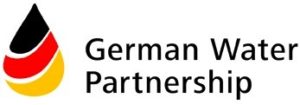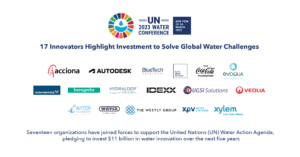Race for World Dominance in Air, Water and Energy Will be Won by Companies Not Countries
Long-term revenue forecasts in the twenty McIlvaine market reports in the air, water and energy fields are heavily weighted by the projected dominance of companies over countries. The ability of governmental officials in individual countries to shape the markets is more than countered by the abilities of domestic and international companies to shape those markets.
The emergence of the global company is one of the most important developments in shaping future markets. On one hand, the U.S. is at odds with China over illegal acquisition of intelligence. On the other hand, Thermo Electron has its entire air pollution research activities located in China. What is there to steal from the U.S. when all the information is already in China? The question is one of internal company security not country security.
In a world of macro-wikinomics, the more information the global company can share with citizens around the world, the more profitable it will be. The companies with the best products (those with the lowest life cycle costs) have nothing to lose by the spread of the knowledge.
It becomes difficult to identify many air/water/energy companies by national origin. Alstom is a French company. However, its air and energy groups are in the U.S. It has a new major joint venture with Shanghai Electric in China to create the world s largest boiler company. This new company with sales of $3.6 billion is registered in Singapore.
Individual companies can shape the energy future of countries as large as the U.S. Sasol, a South African company, is moving forward to build a 96,000 barrel per day plant to convert shale gas to liquid fuels. It will be the largest manufacturing project in the history of Louisiana and one of the largest ever in the United States.
Shell, with headquarters in the Netherlands, is also planning a gas-to-liquids plant as well as LNG and other investments in the U.S. If the two companies (South African and Dutch) proceed with these plants, it will boost the U.S. self sufficiency in liquid fuels by more than many of the U.S. publicized governmental policies being so hotly disputed.
The companies making $10 billion decisions on plant investment will shape the energy future. If these companies gamble on cheap gas availability and build these plants, the power companies will not have a competitive gas source. There will be pressure to build new coal-fired power plants. This is already happening in Germany, a leading advocate of greenhouse gas reduction. The high cost of electricity has forced the country to approve some new coal-fired power plants.
The environmental industry continues to globalize at a rapid pace. Nederman, Andritz and Doosan are just three examples of companies whose recent acquisitions make them global environmental players. Yokogawa, Emerson and ABB are three examples of companies making automation and instrumentation which are already global but are focused on growth in the regions where they are weakest.
Source: The McIlvaine Company







